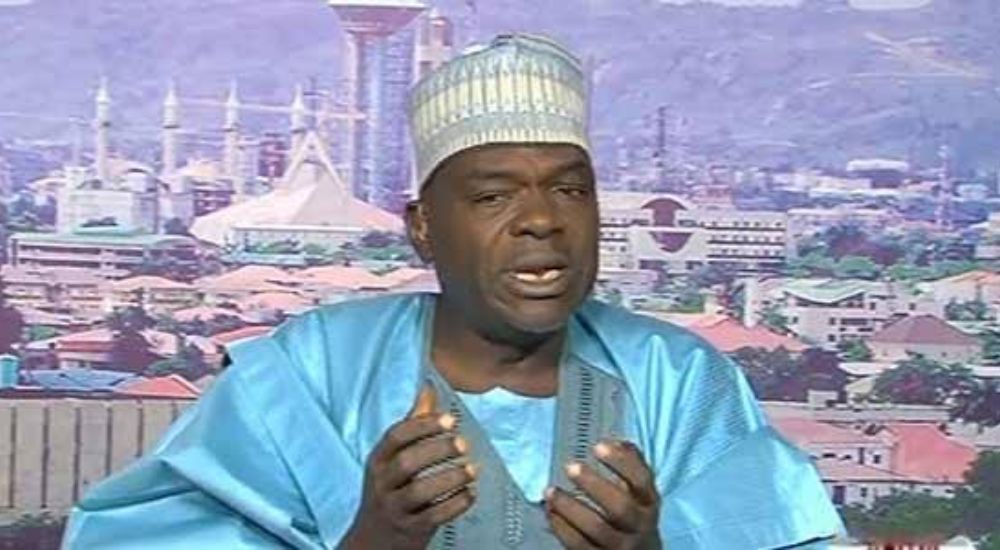Miyetti Allah Rejects Christian Genocide Claim, Says Muslims Also Being Killed
The National President of the Miyetti Allah Cattle Breeders Association of Nigeria (MACBAN), Baba Othman Ngelzarma, has dismissed claims that Christians are being targeted in a coordinated campaign of genocide.
He argued that Nigeria’s widespread killings stem from deep-rooted, region-specific conflicts rather than religious persecution.
Speaking in an interview on Channels Television’s Morning Brief on Friday, Ngelzarma tackled rising international concern, amplified recently by comments from U.S. President Donald Trump, that Nigeria is experiencing Christian genocide.
He argued that such conclusions oversimplify a crisis shaped by farmer–herder clashes, banditry, climate pressures and longstanding indigenous-settler tensions across states like Plateau, Benue, Taraba and Borno.
“There are reports and allegations of violence and persecution against Christians in Nigeria within the context of the ongoing crisis. But you see, in my own view, I don’t see it as a Christian genocide because the crisis is deeper from place to place depending on where it is taking place,” he explained.
He said decades-old disputes have evolved into a complex mix of criminality and competition over shrinking land and water resources, which are problems he warned will worsen as Nigeria’s population grows.
Advertisement
He added that the frequent coincidence of Fulani herders being Muslim allows observers to colour the conflict along religious lines even when the triggers are economic or historical.
However, his position was countered with a broader peacebuilding perspective by the founder of the Displaced Women and Children Foundation (DWCF), Salis Abdulsalam, who joined the programme from Jos.
Abdulsalam, who has spent years working on inter-communal reconciliation, said Nigeria’s narrative environment itself fuels recurring violence, arguing that sensational labels sometimes distort realities and deepen suspicion between communities.
“Boko Haram is a nomenclature, you know. The Nigerian government, state governments, and the media are responsible for the escalation of a lot of this crisis. The media created the name and made the name Boko Haram popular.
“Now, because they say ‘Boko Haram’ in Hausa means ‘Western education is a sin’. Everybody is stuck with it. So automatically, when they say ‘Western education’, the narrative there is, ‘Where did it emanate from? emanated from the Western world, where Islamic practice is limited. So these are some of the narratives being pushed by the media,” he added.
Advertisement
Abdulsalam also stated that the failure to recognise Muslim casualties, especially in Plateau and parts of the North, because of cultural practices, rapid burials, and the focus of humanitarian interventions, has created a sense of invisibility and grievance among affected communities.
He said politicians have often sensationalised the crisis, creating the impression that Christians alone are targeted.
“The media is not investigative. They won’t ask. Now, in the whole of this, what happens to the Muslim casualty? These are the kinds of things that actually bring about reprisal. These are the kinds of things that do not encourage healing, and they fuel the cycles of revenge,” Abdulsalam said.
Abdulsalam warned that foreign interventions and international commentary, such as claims by Trump, worsen tensions.
“When Donald Trump said there is Christian genocide, what comes to the mind of Muslims is that America is coming to fight against anybody who is not Christian.
“How do you expect Muslims to feel if America is coming to help us deal with criminals? Because you have Muslim criminals, you have Christian criminals,” he said.
Advertisement
Ngelzarma and Abdulsalam stressed that solutions must focus on peace-building, addressing root causes of conflict, and ensuring that reporting and humanitarian interventions recognise the plight of all communities.
They warned that ignoring the role of criminality, settler-indigenous disputes, and resource scarcity will perpetuate cycles of violence across Nigeria.
“If you insist on calling it a genocide, then let it be a genocide against humanity in Nigeria, including both Christians and Muslims,” Ngelzarma said, urging a more balanced and neutral approach to understanding the country’s crisis.

